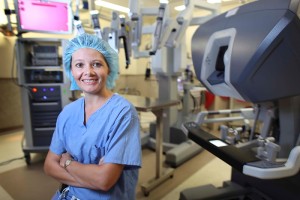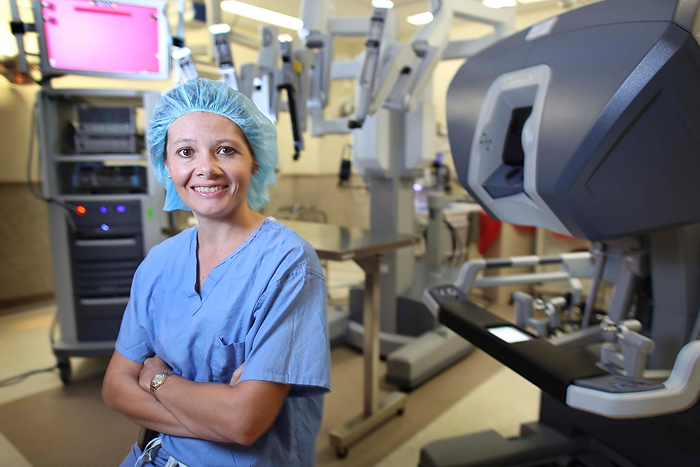The Health Center offers robotic surgery as a minimally invasive option for complex surgical procedures and in keeping with its educational mission, it has been chosen as a training site for physicians learning the technique.
“This technology is revolutionizing cancer surgery and now the Health Center will not only offer state of the art care for our patients, but allow our faculty to be leaders in areas of teaching and research for innovative cancer treatments,” says Dr. Angela Kueck, a gynecologic oncologist and medical director of the Health Center’s robotic surgery program.
Surgery with da Vinci does not place a robot at the controls. A specially trained surgeon is controlling every aspect of the surgery. But by using the da Vinci Surgical System, the surgeon is able to operate with greater precision and control through tiny incisions, minimizing the pain and risk associated with large incisions while increasing the likelihood of a fast recovery and excellent clinical outcomes.

“Patients will have less pain and a shorter hospital stay,” says Kueck. “In addition, since the robot has a teaching platform, it allows our surgeon to supervise and work simultaneously with a resident trainee. It also has a computerized simulator for training of new physicians.”
At the Health Center, robotic surgery is currently being used for gynecologic oncology and urology procedures. In the next few months, many more services will be offered, Kueck says.
Nationally, robotic surgery is used in the majority of cancer surgeries including gynecologic, prostate and head and neck cancers. It’s also being used in other surgical services such as ear, nose and throat (ENT), urology, and fertility procedures.
For more UConn Health Center news and information, follow us on Facebook, Twitter and YouTube.



